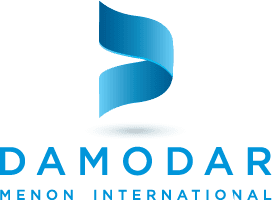The global viscose industry is going through a significant change, and viscose yarn manufacturers in India are at the forefront. A type of rayon, viscose yarn is a versatile material with multiple applications in the textile industry. It is used for creating garments, and nonwoven textiles, as well as has numerous industrial applications.
Viscose, the first type of rayon, was invented in 1880. Known for its luxurious appearance, noticeable sheen, and affordability, viscose offers excellent durability, making it a favorite in the Indian garstand as a key player, highly regarded for exporting high-quality viscose yarn to the global market. Demand for it in India is expected to rise in the coming years. In this article, we will explore the factors contributing to India’s leadership in viscose yarn manufacturing.
The Rise of Viscose Yarn Manufacturers in India
Viscose, also known as rayon, is a man-made fiber regenerated from 100% plant cellulose, such as cotton linter and wood pulp. Despite its natural origins, viscose is not classified as a natural fiber due to the extensive chemical processes involved in its production, making it more chemically synthesized.
In the 20th century, viscose gained popularity as a cost-effective alternative to silk, offering a similar luxurious feel and appearance at a fraction of the price. Its ability to mimic the feel and appearance of silk, while offering a unique luster makes it a popular choice for both everyday wear and elegant attire. This blend of affordability, versatility, and aesthetic appeal has cemented viscose’s place as a staple in global textile manufacturing.
Indian fashion industry saw a rise in viscose from 2013 to 2015 due to the increasing demand from domestic consumers. At present, the Grasim Industry (a part of Aditya Birla Group) is the leading producer of Viscose Staple Fiber (VSF) in India.
In 2022, the global market for viscose staple fiber (VSF) was about 5.85 million tonnes, with 60% of exports from India. Factors such as lower production costs than cotton and silk, and favorable economic conditions in India contribute to this growth. In addition, declining prices of petroleum-based fibers are expected to increase competition but also drive innovations and cost reductions in viscose production.
At DMI, you can not only export and import cotton fabric online in India but also viscose rayon and other synthetic fabrics and yarn from Indian manufacturers.
How is Viscose Manufactured?
Though farmed from the wood pulp of different trees, Viscose Rayon is categorized as a semi-synthetic or biosynthetic fabric and not a natural fabric. This is because the production process starts from a natural material and it undergoes extensive chemical processing, essentially altering its original state.
The wood pulp is taken from trees like beech, bamboo, pine, etc. The pulp is dissolved in chemicals, like sodium hydroxide and carbon disulfide to alter its core and turn into something called alkali cellulose.
This viscose solution is then passed forcefully through tiny holes of a device called the spinneret to create filaments.
The filaments are then immersed in a chemical bath which transforms them into solid fibers.
In the final stage, the fibers are washed, cleaned, and dried, and are cut into desired lengths of viscose yarns.
Because of this complex process, viscose fabric feels considerably different from cotton in appearance and feel.
It easily stretches, holds shape in pleats and ruffles, retains dye better, and can be printed in a thousand different qualities, weights, textures, types, designs, and patterns.
It is one of the lightest fabrics in the world. You can stitch up an entire dress in less than 100 g.
You can also create heavier and more durable fabrics with Viscose yarn.
Viscose yarn manufacturers in India blend the yarn with other materials like polyester and cotton to achieve different finishes.
Why India is a Favorable Seller for Global Viscose Yarn Buyers
India has a deep-rooted textile heritage, dating back thousands of years. This impeccable knowledge and expertise give viscose yarn manufacturers in India an additional edge over others. With traditional solutions and modern techniques, Indian yarn manufacturers can produce superior-quality viscose at a price much lower than natural fibers.
Sustainability: The textile industry is the largest contributor of waste. However, the Indian textile industry is slowly changing this scenario by incorporating a steadfast culture of recycling and upcycling into their manufacturing processes. From sourcing raw materials responsibly to implementing eco-friendly techniques, Indian yarn manufacturers are focused on reducing their environmental footprint.
Competitive Market Price: One of the major advantages of Indian textile manufacturers is our competitive price offerings. India boasts a cost-effective production process and one of the largest pools of skilled laborers. These two favorable conditions, along with the economic situation allow manufacturers to export high-quality viscose yarn at low cost, making Indian viscose a sought-after commodity globally.
Strategic Global Partnerships: Thanks to the Modi government, Indian manufacturers enjoy strategic partnerships with global textile companies, improving our market reach and credibility. The partnerships have not only helped viscose yarn manufacturers in India to expand their offerings but also be a part of knowledge exchange and tech advancements. For instance, TEXchange Global, a pioneer in textile trading applications, essentially brings together global buyers and sellers in one place to make the import and export of synthetic, viscose, and cotton fabric online in India efficient, affordable, and at lightning speed. TEXchange Global is spearheaded by Damodar Menon International, one of the oldest and largest textile suppliers in India.
As demand for high-quality yarn continues to rise, viscose yarn manufacturers in India are well-positioned to meet the import criteria. For more updates on cotton fabric online in India, yarn news, and more, follow DMI.

